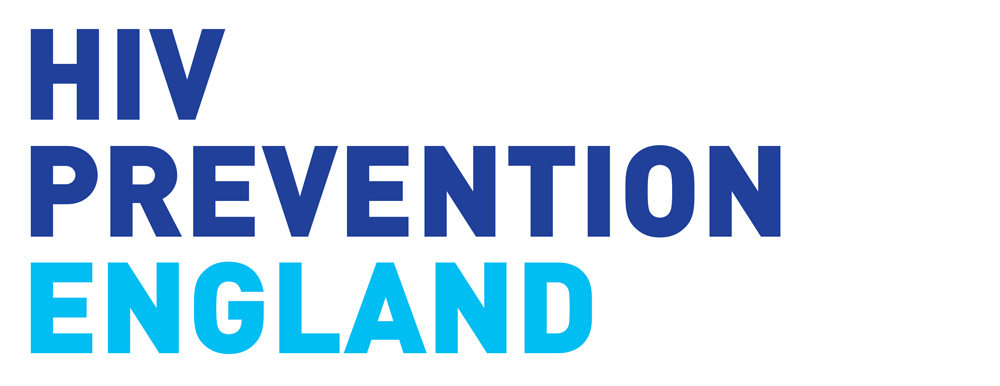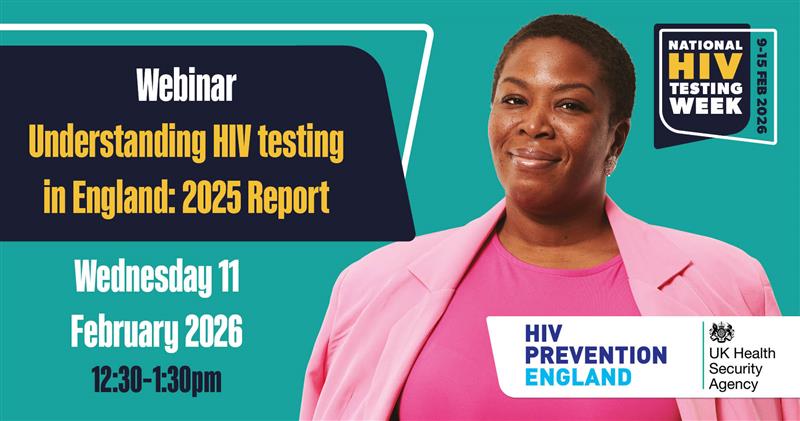National HIV Testing Week is a key moment to raise awareness, reduce stigma and make it easier for people to access an HIV test. It’s also an opportunity to understand what’s working, identify changes in testing trends, highlight gaps where more effort is needed and explore ways to further improve access to testing.
On Wednesday 11 February 2026 (12:30-13:30pm), HIV Prevention England is hosting a webinar presented by Dr Alison Brown, Consultant Scientist at the UK Health Security Agency (UKHSA), on the findings from the UKHSA’s Understanding HIV testing in England: 2025 report. The session will explore what latest surveillance and service data tells us about HIV testing in England across a range of settings and consider the implications for commissioning, community action and service optimisation.
Register: HIV Prevention England: Understanding HIV testing in England 2025 report
Why this webinar matters
Making HIV testing accessible is pivotal to achieving the HIV Action Plan’s goal of ending HIV transmissions in England by 2030.
Understanding how testing is being delivered and where barriers persist helps us all target efforts where it will have the greatest impact.
The UKHSA’s Understanding HIV testing in England: 2025 report provides the most comprehensive analysis of testing activity and outcomes across different routes and services. Expect discussion of what the data suggests about reach, coverage and variation, as well as what should be considered to expand and improve access to testing, particularly for target groups and in locations where testing uptake remains lower.
Who should attend
This session is aimed at:
- Clinicians working in and alongside sexual health, primary care, emergency care and other relevant services
- Commissioners and system leaders planning pathways, resources and local HIV testing and prevention strategies
- Community organisations supporting testing, outreach and engagement
Whether you deliver tests directly, commission services, or support communities to access care, this webinar will provide valuable insights to inform and support your work.
What we’ll cover
The webinar will explore:
- What the report shows about where HIV testing is happening across England
- Insights into variation and inequalities in testing access and outcomes
- What the findings imply for service design, commissioning and partnership working
- Practical considerations for improving reach and strengthening routes into care
There will be an opportunity to ask questions during the session.
Register
Register: HIV Prevention England: Understanding HIV testing in England 2025 report
Date: Wednesday 11 February 2026
Time: 12:30 until 13:30pm
If you’re involved in HIV prevention, this is a timely opportunity to hear directly from UKHSA, connect the national picture to local planning, and take forward actions that make testing easier, more routine, and more equitable.


